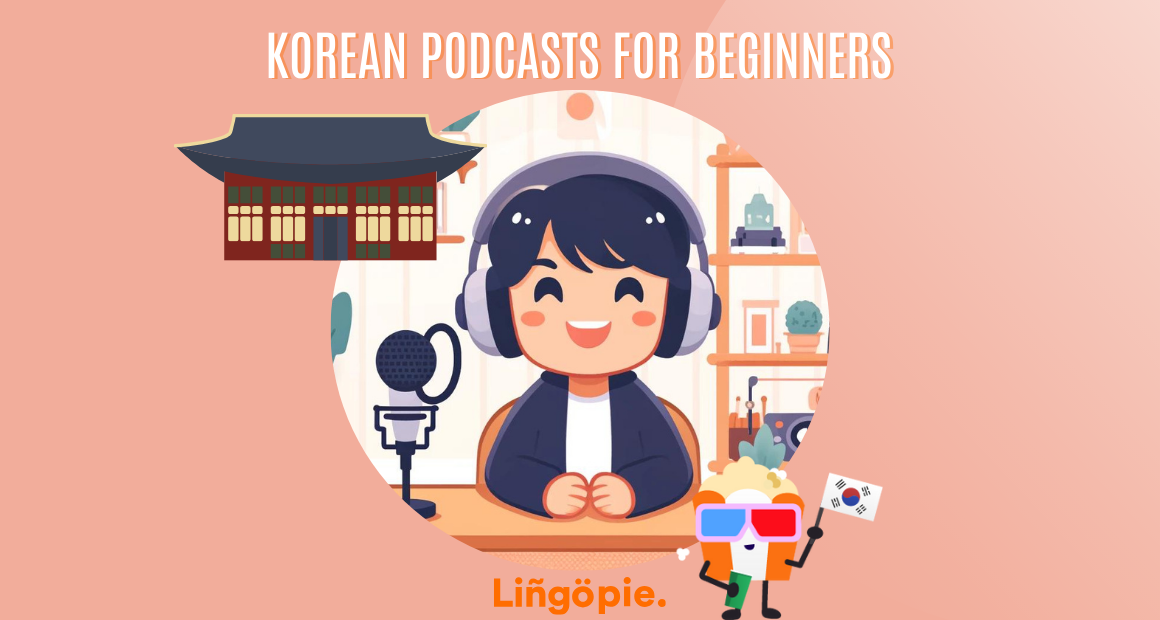Ever feel like you can't find time for language learning in your daily hustle? I get it. Life moves fast, but so does the importance of keeping up with your language skills.
The good news? You don't need hours to practice your target language. Those little moments in between—like waiting for your coffee to brew or taking a breather between tasks—can actually become a good time for language practice.
In this blog post, we'll talk about quick ways to get daily language practice on your break, so you can make progress without adding more to your plate!
1. Use Mobile Language Learning Apps
Let’s dive into the world of language learning apps—your go-to tool for turning idle moments into productive language practice sessions.

What Are Some Popular Language Learning Apps?
Ever heard of Lingopie, Babbel, or Rosetta Stone? These are just a few of the heavyweights in the world of language learning apps. With millions of users worldwide, they offer interactive lessons, gamified exercises, and progress tracking—all at your fingertips. Whether you're a beginner or aiming to brush up on advanced skills, there's an app out there tailored to your needs.
Choosing the right app can make all the difference in your language-learning journey. Looking to practice conversation skills? Try Tandem or HelloTalk for language exchange with native speakers. Want a structured curriculum? Duolingo and Babbel offer comprehensive courses in multiple languages. If immersion is your goal, consider Lingopie, which uses tv shows and movies to teach languages in context. Whatever your language goals, there's an app out there waiting to help you reach them.
What Are The Advantages of Using Mobile Apps During Breaks?
Now, why are these apps perfect for your breaks? Picture this: You've got a 15-minute coffee break. Instead of mindlessly scrolling through social media, you can fire up your favorite language-learning app and squeeze in a quick lesson. Mobile apps are ultra-convenient, allowing you to learn anytime, anywhere, even in the shortest of breaks. Plus, their bite-sized lessons are designed for on-the-go learning, making them ideal for busy schedules.
So, next time you're on break at school or work, skip the mindless scrolling and dive into a language lesson instead. With the right app in hand, you'll be amazed at how much progress you can make in just ten minutes a day.
2. Listen To Podcasts Or Audiobooks In Your Target Language

Listening is a cornerstone of language learning. It exposes you to natural speech patterns, vocabulary, and accents, helping you develop your listening comprehension skills. Plus, it's a passive way to immerse yourself in the language, making it perfect for those short breaks when you don't have time to sit down with a textbook.
How To Select Podcasts or Audiobooks for Language Practice?
Now, where to find these language-rich resources? Podcasts and audiobooks come in all shapes and sizes, catering to every language learner's interests and proficiency levels. Whether you're into storytelling, news, comedy, or history, there's a podcast or audiobook out there for you. For beginners, opt for podcasts with slower speech and clear enunciation. As you progress, challenge yourself with more advanced content.
Tips for Effective Listening During Short Breaks
So, you've found the perfect podcast or audiobook—now what? Make the most of your break time with these listening tips:
- Choose Short Episodes: Look for podcasts with bite-sized episodes that fit into your break time. Aim for 10-15 minute segments that you can easily digest.
- Active Listening: Engage with the content actively. Try to follow along with the speaker, pick out keywords, and take mental notes of new vocabulary.
- Repeat and Rephrase: If you hear a phrase you don't understand, replay it and try to rephrase it in your head. This helps reinforce your understanding and retention.
- Take Notes: Keep a notebook handy to jot down new words or phrases you come across. Review them later to solidify your learning.
- Stay Consistent: Even if you only have a few minutes each day, make listening practice a regular part of your routine. Consistency is key to language acquisition.
3. Use Flashcards and Vocabulary Apps

Vocabulary is the building block of language. Without a solid foundation of words, it's hard to express yourself fluently or understand others effectively. That's why vocabulary retention is crucial in language learning. By expanding your vocabulary, you gain the tools to express complex thoughts and engage in meaningful conversations.
What Are Flashcard Apps and Their Benefits?
Enter flashcard apps—the modern solution to traditional rote memorization. These apps leverage spaced repetition algorithms to help you efficiently learn and retain new words. Platforms like Anki, Quizlet, and Memrise offer customizable flashcard decks tailored to your language goals. They provide interactive exercises, audio pronunciations, and progress tracking, making vocabulary acquisition a breeze.
Tips for Incorporating Flashcards into Break Routines
Now, how can you make flashcards work for you during breaks? Here are some strategies to try:
- Micro-learning Sessions: Break down your flashcard sessions into bite-sized chunks. Spend just a few minutes reviewing cards during each break, focusing on a specific theme or category.
- Use Dead Time Wisely: Waiting in line or commuting to work? Whip out your flashcard app and make the most of those idle moments. Every minute counts!
- Mix It Up: Keep your sessions fresh by alternating between different types of flashcards—vocabulary, phrases, sentences, etc. This prevents boredom and keeps your brain engaged.
- Track Your Progress: Set goals and track your progress over time. Celebrate small victories and milestones to stay motivated on your language-learning journey.
- Review Regularly: Consistency is key to vocabulary retention. Make flashcard practice a daily habit, even if it's just for a few minutes each day.
4. Use Immersive Techniques

Immersion is a powerful tool in language learning, and you don't have to travel abroad to experience it. By incorporating the target language into your daily surroundings, you can create an immersive environment right at home or work. Surrounding yourself with the language helps reinforce vocabulary, grammar, and pronunciation, making it an effective way to accelerate your learning progress.
How To Create an Immersive Language Environment During Breaks?
- Change your device language settings to the target language. This way, you'll be exposed to the language every time you use your phone, computer, or tablet.
- Listen to music, podcasts, or audiobooks in the target language during your breaks. This not only exposes you to natural speech patterns but also helps improve your listening skills.
- Label everyday objects in your surroundings with their corresponding words in the target language. For example, stick post-it notes with the names of objects on your desk or around your home.
- Engage in brief conversations or language exchange sessions with colleagues, friends, or language partners who speak the target language.
- Use language learning apps that offer immersive features, such as language immersion games or virtual reality simulations.
What Are the Benefits of Immersion for Language Learning?
Improved Listening and Comprehension: Immersion exposes you to authentic language usage in real-life contexts, helping you better understand native speakers and different accents.
Related:

Enhanced Speaking Skills: By regularly hearing and speaking the language, you'll become more comfortable expressing yourself and using correct pronunciation.
Expanded Vocabulary: Immersion exposes you to a wide range of vocabulary in context, helping you learn new words and phrases naturally.
Cultural Understanding: Immersion goes beyond language skills—it also provides insights into the culture, customs, and traditions of the target language speakers.
Increased Confidence: As you become more immersed in the language, your confidence in using it will grow, leading to greater fluency and proficiency.
Immerse Yourself In The Target Language With Lingopie!
Who says learning can’t be fun? Grab some popcorn and immerse yourself in foreign films or binge-watch TV shows. That's the mission of Lingopie, making language learning fun and immersive!
Lingopie makes learning a new language fun and effective by using real TV shows, movies, and documentaries. It offers interactive subtitles, so you can click on any word to get an instant translation and pronunciation.
The platform also personalizes content based on your progress, making sure you're always engaged. Words you click on are saved to flashcards for easy review, and there are quizzes to help you remember what you've learned. Plus, by watching different genres, you get a feel for the culture and language in real-life situations.
Download Lingopie from the App Store or Play Store now and get a FREE 7-day trial!
Frequently Asked Questions
1. How to practice a language in daily life?
Incorporating language practice into your daily routine can be both fun and effective. Here are some tips:
- Label items around your home with their names in the target language.
- Listen to podcasts, music, or audiobooks in the target language during your commute or while doing chores.
- Set your phone or computer language settings to the target language.
- Practice speaking with language exchange partners or friends who speak the language.
- Read books, articles, or news in the target language during your downtime.
- Use language learning apps for quick practice sessions during breaks.
2. Is 1 hour a day enough to learn a language?
The amount of time needed to learn a language varies depending on factors such as your goals, current proficiency level, and the complexity of the language. While one hour a day may not lead to fluency overnight, it can certainly contribute to steady progress over time. Consistency is key—regular practice, even in smaller increments, is more effective than sporadic, intensive study sessions.
3. How can I learn a language while working full-time?
Balancing language learning with a full-time job requires strategic planning and efficient use of your time. Here are some tips:
- Incorporate language learning activities into your daily routine, such as listening to podcasts during your commute or reviewing flashcards during breaks.
- Set realistic goals and prioritize language learning tasks based on your schedule and energy levels.
- Utilize online resources and mobile apps for convenient, on-the-go practice.
- Make use of downtime at work by listening to language learning materials or practicing speaking with colleagues.
- Consider dedicating focused study sessions on weekends or days off to supplement your daily practice.
4. Should I practice a language every day?
Practicing a language every day can greatly enhance your progress and retention. Regular exposure to the language helps reinforce vocabulary, grammar, and pronunciation, leading to improved fluency over time.
However, the frequency and duration of practice sessions can vary based on your schedule and learning preferences. Consistency is more important than intensity, so aim to incorporate language practice into your daily routine in whatever way works best for you.

Final Words
Learning a language while juggling a busy life is totally doable and totally worth it. Whether you've got just a few minutes here and there or a solid chunk of time, consistency is key. Mixing things up with apps, language buddies, and everyday immersion can really boost your progress.
Remember, it's not about perfection—it's about enjoying the ride and making small steps every day. So keep at it, stay curious, and have fun with the journey of language learning!









![The Fastest Way to Learn Spanish In 2026 [Guide]](/blog/content/images/size/w300/2025/12/Fastest-way-to-learn-spanish.jpg)
